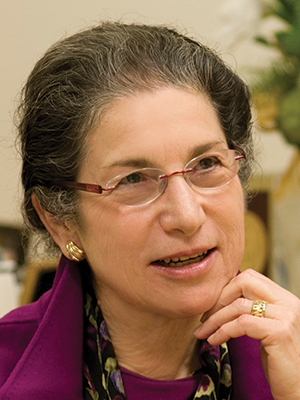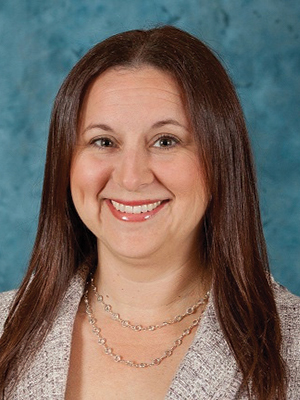I’m about to start treatment. What are my options if I want to continue working?

Peter Daly, Patient Advocate for Patient Partnerships in Madison, Wis. Photo by Marc A. Korobkin
PETER DALY: I really encourage patients to talk to their supervisors or to human resources about their diagnosis and their treatment. If you want to keep working, you can ask your employer for certain accommodations, such as a flextime arrangement that would allow you to work from home for part of the week or month. Other accommodations might include immediate access to a restroom, defined breaks, and leave times for your treatment.
Another option to consider is disability insurance, which typically pays between 60 and 70 percent of an employee’s salary. A lot of employers offer that, and a fair number also offer partial disability insurance, which comes into effect when patients are unable to perform one or more functions of their job. Partial disability insurance gives employees the flexibility to say, “I’m not fully disabled timewise, but I’m disabled down to three-quarters time or half time. So, I’m going to continue working, I’m going to get my treatment, and I’m going to lean on my disability insurance to make up a portion of that missed income.” That can be a real win-win for everybody. You can retain your job, and your employer doesn’t have to pay your full salary.
Often, employers and employees overlook the option of reaching an arrangement that works for both of them. Instead, they immediately consider what the law dictates, which is unlikely to be as favorable for either side. If an employer doesn’t budge early in the negotiations to work with your treatment schedule and offer accommodations at work, then you may need to call their attention to the Family and Medical Leave Act (FMLA). This national law allows an employee who has a serious health condition to take 12 weeks of unpaid leave in a 12-month period. Employees must have worked at their company for at least 12 months and they also must have worked at least 1,250 hours during the previous year. If a company employs fewer than 50 people, FMLA does not apply.
You can also talk to your doctors about developing a treatment plan that will match your work schedule. For example, some people have treatment on a Friday afternoon so that they can have the weekend to recover. You can also ask your doctors if you can take a short break from treatment if the side effects are preventing you from being able to work.
I talked to a patient who had to present at a big international conference. He asked his doctor if he could change a regularly scheduled treatment. The difference was only four days, but it allowed the man to experience an important moment in his career. Again, delaying or modifying treatment is [primarily] the doctor’s decision, but the discussion is well worth having.
EMPLOYMENT-RELATED RESOURCES // The U.S. Equal Employment Opportunity Commission explains how cancer is considered a disability under the Americans With

Patricia Ganz, Professor of Health Services and Medicine, University of California, Los Angeles, School of Public Health
Now that my treatment is complete and I don’t see my doctors and nurses all the time, I feel a little abandoned. How can I overcome these feelings?
Patricia Ganz: At the beginning of treatment, doctors give patients a very clear plan: You’re going to get treated for “x” number of days or you’re going to come in for radiation daily for six weeks. The patient knows exactly what to expect. But at the end of treatment, doctors don’t give you similar advice.
When patients are going for treatment every week, they can talk to a doctor about anything that is bothering them. But when they finish treatment and the doctor says, “You’re doing so well, you don’t need to come back for three months,” they wonder how they’re going to have the easy access that they had before. They don’t want to call and bother somebody for every ache and pain, but they want to be reassured, and that support system is missing.
Also, while patients were in treatment, family and friends may have rallied to provide food and transportation. Then when treatment ends, everybody thinks, “Oh, it’s over, you should be feeling great!” But patients are deconditioned. They may have been off work, or they’re trying to figure out how to put their lives in order again.
For anyone who’s had cancer, life will never be the same, and I think the patient feels that profoundly. Their family and friends may try to empathize, but the patient feels alone and a sense of abandonment. Often, they’ve put a lot of the emotional feelings on hold. They’ve put up a brave front during treatment, and then it just hits them. That’s why patients often find good company with other patients.
When treatment ends, going to a support group or finding psychosocial resources is helpful. Patients also can ask about receiving a cancer survivorship consult, which gets doctors to focus on health and wellness, and possibly coordinating care with a primary care physician. The most important thing is to say: Give me a treatment summary and care plan. Tell me what I need to do next, and what things I have to look out for.
SUPPORT SERVICES // CancerCare provides face-to-face, online and telephone support groups. 1-800-813-4673 // Cancer Support Community offers live online support groups. 1-888-793-9355 // Livestrong provides one-on-one support online or over the phone. 1-855-220-7777 // The American Society of Clinical Oncology has documents that patients can use to develop treatment and survivorship care plans with their health care teams.
I was diagnosed with cancer. What paperwork do I need in order to ensure that my wishes, my family and our finances are protected?

Joanna L. Morales, Director, Cancer Legal Resource Center in Los Angeles
Joanna L. Morales: If you don’t know where to start, speaking with an estate-planning attorney and your health care team are good options. They will be able to point you toward resources either in the facility where you are being treated or in your community.
Estate planning involves more than just looking at a will as an option. It’s asking what would happen if you weren’t able to make decisions for yourself, whether they are health care decisions, financial decisions, or practical ones. You want to look at the whole spectrum of possibilities, to make sure that you’re protected and that your wishes are being met.
A lot of people aren’t familiar with a durable power of attorney for financial affairs. The purpose of this document is to protect yourself if you can’t make decisions related to your finances. Imagine if you were in a car accident and you were unconscious for a week. Who would be able to pay rent for you and have access to your bank account? With a durable power of attorney for financial affairs, you could designate a person to handle all of those financial transactions.
It’s important to make sure that you choose only one person, and in case that person isn’t available, pick a secondary or even a third person. But do not make them co-decision makers, because if they disagree, your wishes may not be met. Keep in mind that a durable power of attorney is only valid while you’re alive. You would need a will or a trust to designate who would handle your affairs after you pass away.
In terms of medical paperwork, the advance health care directive is the most widely used and accepted. This document has a couple of parts to it. Primarily, it gives you the option to appoint someone to make decisions for you if you can’t make decisions related to your health care specifically. It also allows you to identify any types of medical care you do or don’t want if you aren’t able to tell a doctor yourself.
RESOURCES FOR LEGAL GUIDANCE AND FORMS // Caring Connections offers state-specific guidelines and forms for advance directives. // LawHelp.org assists low- and moderate-income families in finding free legal aid programs in their communities. // Cancer Legal Resource Center provides resources on cancer-related legal issues for survivors, caregivers and others coping with cancer. 1-866-843-2572
Cancer Today magazine is free to cancer patients, survivors and caregivers who live in the U.S. Subscribe here to receive four issues per year.




